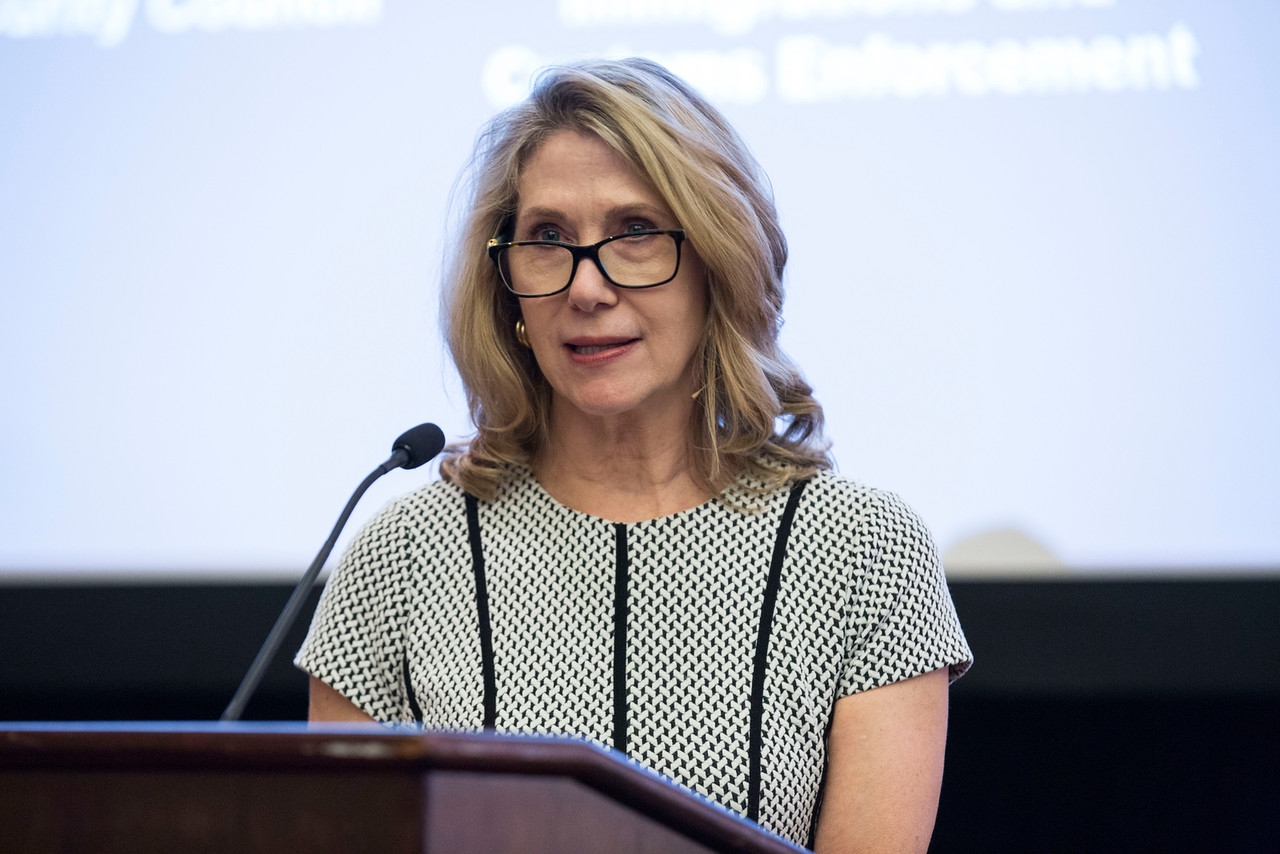Reflections on the Thomson Reuters Government Conference

Thomson Reuters held its first Government Conference last week in Washington, D.C., bringing together federal government customers, organizations that serve the government space and Thomson Reuters colleagues from across the enterprise to discuss key national security challenges. The event offered participants the opportunity to hear from leading experts on these topics and understand ways in which the private sector can help meet government needs.
The day-long event featured four panels that addressed:
- Screening and due diligence, with regard to vetting immigrants and refugees seeking entry to the United States, as well as foreign investments and acquisitions that may jeopardize national security through foreign control of critical U.S. assets
- Supply chain risk management, and the importance of identifying and confronting tainted supply chains and the implications of enforced labor regulations worldwide
- Insider threat risk and mitigation opportunities for government and corporations alike, including the theft or leak of classified data, proprietary information and intellectual property
- Illicit financial activities of nation states, terrorist and criminal organizations and the impact on national and corporate security
As emcee for the day, and a panel facilitator, I was pleased to see that the discussions throughout the day had a recurring theme – how do we unite the expertise from the public and private sector to address vexing national security issues?
Our first panel on screening and due diligence examined the intersection of border and economic security and how we leverage big data to discern potential “bad actors” from those who seek citizenship or economic opportunity in the U.S. The challenge, as the panel discussed, is how to balance the need for thorough screening while promoting a free and open society and a thriving economy.
The government looks to private industry to provide the technology needed to operate at scale and make sense of the massive amounts of data it accesses, while it grapples with the policy and privacy considerations related to the use of social media information to identify derogatory data that may impact decision-making.
This was a natural lead-in to our supply chain risk management discussion. At worst, many Americans believe slavery ended 150 years ago; at best, they see it as a foreign problem that doesn’t affect their daily lives. The reality is that this couldn’t be farther from the truth.
Forced labor is a $150 billion worldwide business that ensnares 35 million people in modern day slavery. Many corporations are global in scope with thousands of international suppliers, and it’s becoming increasingly likely that goods they manage somewhere along their supply chains may be the product of forced labor.
So how do companies address the issue? It starts with vigilance, transparency and a willingness to report and act when they find goods supplied by forced labor. As one panelist noted, investors are becoming more savvy, asking for companies to account for the “cleanliness” of their supply chain. In other words, it’s not just the right thing to do, it’s good for business.
While organizations might be compelled to take action to clean their supply chains, action becomes imperative when it comes to addressing insider threats. As they say on television, it’s a story “ripped from the headlines,” but organizations cannot afford to not have an insider threat protocol.
The specter of “insider threat” goes far beyond protecting classified and proprietary data and intellectual property; the issue also concerns the health and wellbeing of an organization’s personnel. From workplace violence to suicide, continuous employee evaluation and security management is paramount. A key take away from the panel was that the public and private sector need to take action now to improve their security. Fortunately, Thomson Reuters is at the forefront of the issue and has developed relevant technology solutions to support insider threat detection.
The final panel took a more global view of security, specifically how illicit finance is a pillar in global transnational crime and terrorist financing networks, fostering corruption that weakens states’ ability to mitigate terrorism and crime. While the threat may seem difficult to overcome, global transparency and sharing of financial data can help reduce or eliminate the influence of bad actors worldwide.
As one panelist astutely observed, and I paraphrase, “We are masters of admiring the problem.” But the focus of the event was about how we can hone the collective will and expertise of all stakeholders to confront problems on a global scale – be it ISIL, human trafficking, immigration and beyond.
As Steve Rubley, managing director of Thomson Reuters Government segment and CEO of Thomson Reuters Special Services, enthusiastically noted in his remarks, we have the resolve, tools and capabilities to confront these global problems. We simply have to start. As one customer also remarked, the public sector is ready and willing to partner with the private sector to look for trusted answers to these challenges.
This post was written by Dawn Scalici, Government Global Business Director, Thomson Reuters.